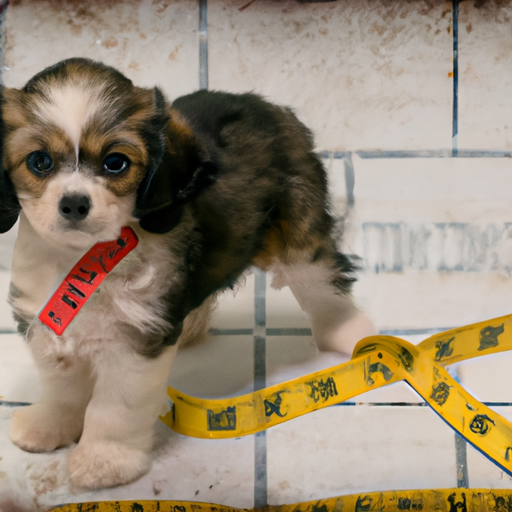As a caregiver to your furry friend, you may be wondering, “when do puppies stop growing?” It’s a common question that pet owners ask and it’s important to know. Understanding your puppy’s growth pattern will help you better care for your pet, ensuring they get the right nutrition and exercise at each stage of their growth.
Understanding Puppy Growth
Puppy growth can be influenced by a number of factors, such as breed, diet, and overall health. While some puppies may reach full size within a year, others may take up to two years or more. The size and breed of the dog play a significant role in determining when your puppy will stop growing.
Size and Breed
- Small Breeds: Small breed dogs like Chihuahuas or Pugs tend to reach their full size at around 9 to 10 months of age.
- Medium Breeds: Medium breeds such as Bulldogs or Border Collies, typically stop growing between 12 to 16 months.
- Large Breeds: Large breeds like Labrador Retrievers or German Shepherds may continue growing until they are two years old.
- Giant Breeds: Giant breeds like Mastiffs or Great Danes can take up to three years to reach their full size.
Nutrition and Puppy Growth
Nutrition plays a crucial role in your puppy’s growth. Puppies require a diet rich in protein, carbohydrates, fats, vitamins, and minerals. Without adequate nutrition, a puppy’s growth can be stunted, and they can suffer from various health issues.
Exercise and Puppy Growth
Exercise is another factor that affects a puppy’s growth. Regular exercise helps to promote healthy growth, but avoid overexerting your puppy as this can lead to joint and bone problems.
Health Factors
Certain health issues can affect a puppy’s growth. Parasites, congenital conditions, and illnesses can all slow down or speed up a puppy’s growth. Regular vet check-ups are essential to ensure your puppy is growing healthily.
Puppy Growth Chart
| Age | Small Breeds | Medium Breeds | Large Breeds | Giant Breeds |
|---|---|---|---|---|
| 6 Months | Almost grown | Halfway grown | 2/3 grown | 1/2 grown |
| 12 Months | Fully grown | Almost grown | Almost grown | 3/4 grown |
| 18 Months | Fully grown | Fully grown | Almost grown | Almost grown |
| 24 Months | Fully grown | Fully grown | Fully grown | Almost grown |
| 36 Months | Fully grown | Fully grown | Fully grown | Fully grown |
Monitoring Your Puppy’s Growth
It’s important to monitor your puppy’s growth to ensure they are growing at a healthy rate. Weigh your puppy regularly and keep track of their weight. Compare your puppy’s weight and size to their breed and age norms.
FAQ
Q: What can slow down a puppy’s growth?
A: Poor nutrition, inadequate exercise, and certain health issues can all slow down a puppy’s growth.
Q: Can a puppy grow after a year?
A: Yes, especially if they are a large or giant breed. Some puppies can continue growing until they are two or three years old.
Q: How can I tell if my puppy is growing properly?
A: Regular vet check-ups are crucial. Your vet can monitor your puppy’s growth and alert you to any potential issues.
Q: What should I feed my puppy to promote healthy growth?
A: Puppies require a balanced diet rich in protein, carbohydrates, fats, vitamins, and minerals. Consult with your vet about the best diet for your puppy.
Q: How much exercise does my puppy need?
A: Exercise requirements vary depending on the breed and size of the puppy. It’s always best to consult with your vet to determine the appropriate amount of exercise for your puppy.
In conclusion, understanding when puppies stop growing can help you provide the best care for your furry friend. Always ensure they have proper nutrition, adequate exercise, and regular veterinary check-ups to promote healthy growth.



